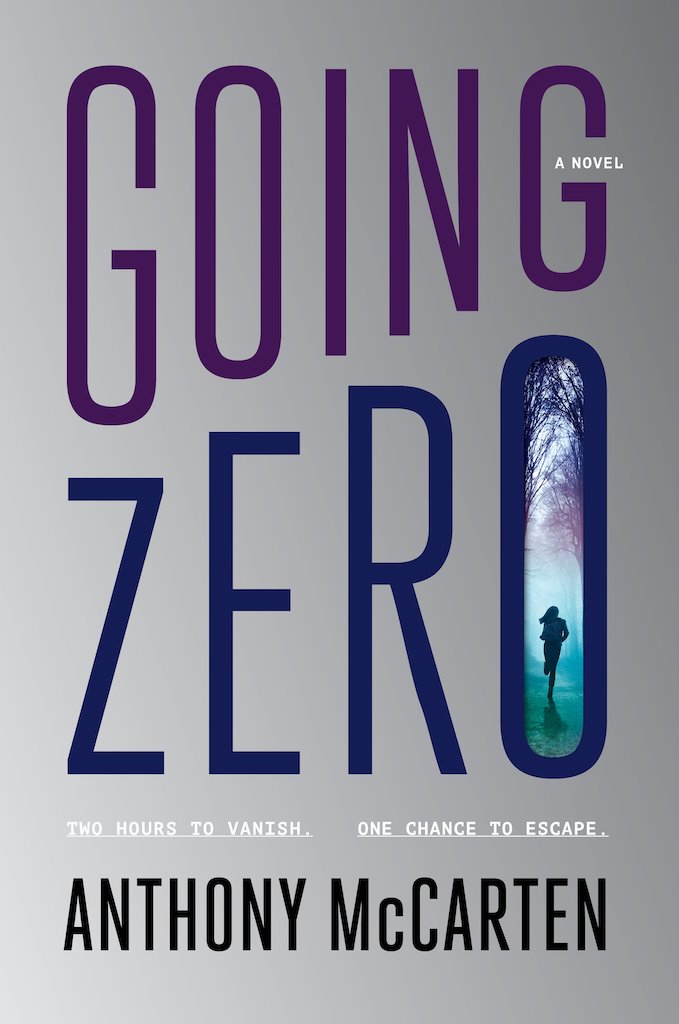“Going Zero”
By Andrew McCarten
Harper Collins Publishing (2023)
304 pages, $30
You know the feeling: You were just thinking about ordering a new water bottle, or you mentioned to someone that you might upgrade a kitchen appliance, and suddenly your phone is filled with ads for the exact products you’re considering. In the back of your mind, you know that your online presence is traceable and that companies collect data about you, but when you are confronted with the reality of just how well they know you, well, it’s more than a little unsettling.
That eerie sense of being silently yet constantly observed and known forms the basis for Andrew McCarten’s newest novel, “Going Zero,” a story about a private tech company, Fusion, that challenges 10 ordinary citizens to see if it is possible to hide from their innovative surveillance software. If the competitors successfully “go zero” — avoiding capture for 30 days — they stand to win $3 million dollars. If Fusion can track down all ten competitors, the company will win a hefty contract with the U.S. government.
Some of the “Zeros” (the competitors who are trying to hide), have expertise in avoiding detection. One was a political rebel who fled China; another contestant has developed software intended to cover your online footprints. The most interesting player is Kaitlyn Day, a librarian who has a carefully crafted strategy to outrun the watchdog technology.
Throughout the novel, McCarten references George Orwell’s “1984” and Aldous Huxley’s “Brave New World” in order to make a powerful point: A few decades ago a story like this would have been categorized as dystopian science fiction. Now, it is our reality.
While the premise of this novel may be designed to awaken a reader to the impending menace of today’s technology, McCarten’s focus is more nuanced. As the story unfolds, it becomes clear that tech companies (and by extension, the government) have access to mind-boggling amounts of data, but what makes the data truly valuable is unthinking human predictability.
Thus, when a competitor’s parents have a grocery bill that is significantly larger than normal, she is captured at their house, along with her children. Another player stares at his favorite beer in a convenience store before deciding to choose another brand, in hopes of throwing off the software, only to learn that the ubiquitous CCTV had captured his internal debate. The competitors believe they are in control of their own behavior — and, by extension, their ability to escape detection — but it becomes clear that they are nowhere near as free, or as inventive, as they’d believed.
For people of faith, human life is full of surprises. Like Saul of Tarsus — who encountered Jesus on the road to Damascus as he traveled to persecute Christians and ended up writing half of the New Testament — God’s grace and intervention adds an element of glorious unpredictability to our lives, despite our own intended plans. We can be certain that God is working all things toward our ultimate good, but how that comes about is anyone’s best guess — God’s designs are his alone to understand this side of heaven.
After reading “Going Zero” some will want to check their devices’ privacy settings and consider going off the grid, but they can find solace in knowing that humans are not programmed to be as predictable as robots. We are given the gift of free will and, especially in cooperation with God, can always take turns that would surprise even the best computer software.

